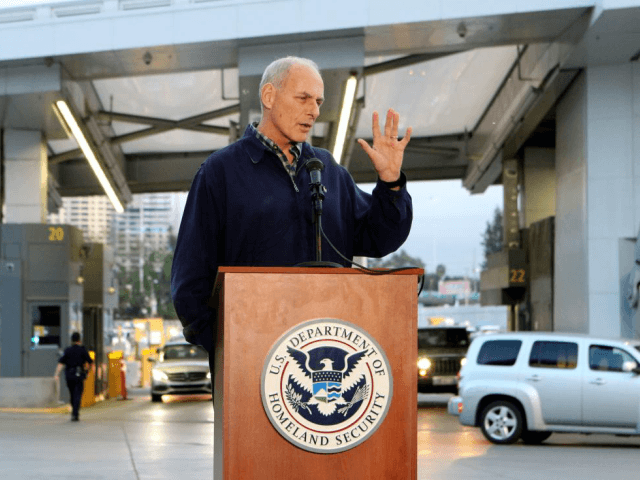WASHINGTON, DC — The United States is gripped by an “elevated threat” as the Christmas holiday approaches posed by homegrown violent extremists (HVEs) seeking to carry out “stray dog attacks” on behalf of the Islamic State (ISIS/ISIL), warned a top U.S. national security official.
ISIS has been able to retain its ability online to mobilize “HVE lone offenders attacks” against the United States even as its so-called caliphate in Iraq and Syria “collapses,” Robin Taylor, a top intelligence official at the Department of Homeland Security (DHS), told the Senate Homeland Security & Governmental Affairs Committee during a hearing Wednesday.
Lora Shiao, the acting director for intelligence at the National Counterterrorism Center (NCTC), a component of the Office of the Director of National Intelligence (ODNI), further declared that despite the losses the group has suffered in Iraq and Syria, its social media reach remains “unprecedented.”
On Wednesday, Shiao told the Senate panel while testifying alongside Taylor:
We do not think battlefield losses alone will be sufficient to degrade its terrorism capabilities. As we have seen, the group has launched attacks in periods when it held large swaths of territory and when under significant pressure from the defeat-ISIS campaign.
In addition to its efforts to conduct external attacks from its safe havens in Iraq and Syria, ISIS’s capacity to reach sympathizers around the world through its robust social media capability is unprecedented and gives the group access to large numbers of HVEs.
The online menace posed by ISIS remains persistent, stressed Taylor, the acting deputy undersecretary for intelligence operations at the DHS office of intelligence and analysis, telling lawmakers:
ISIS members continue to attempt to recruit and radicalize to violence Homegrown Violent Extremists (HVEs) through social media. The reach and popularity of social media has enabled HVEs to connect more easily with terrorist organizations, such as ISIS.
We assess there is currently an elevated threat of HVE lone offender attacks by ISIS sympathizers, which is especially concerning because mobilized lone offenders present law enforcement with limited opportunities to detect and disrupt their plots.
Mark Mitchell, the Pentagon’s acting assistant secretary of defense for special operations/low-intensity conflict who also testified, said that ISIS would likely increase its reliance on its online capabilities as it continues to lose on the battlefield.
In his written testimony, Mitchell stated:
As ISIS loses territory in Iraq and Syria, its operations will become more distributed and more reliant on virtual connections. Their terrorist cadres will migrate to other safe havens where they can direct and enable attacks against the United States, our allies and partners, and our global interests.
They will also continue to radicalize vulnerable individuals and inspire them to conduct “lone wolf” (or “stray dog”) attacks. We will continue to see ISIS and al-Qa’ida threats to our homeland, as well as our allies and partners, from locations in Afghanistan, the Middle East, Africa, Southeast Asia, and the Balkan States, among other locations.
The DHS official proclaimed that the al-Qaeda (AQ) terrorist threat still grips the United States more than 16 years after America’s war on terror began in response to the September 11, 2001, attacks.
Taylor revealed in his written testimony:
Core AQ and its affiliates remain a major concern for DHS. Despite the deaths of many AQ senior leaders, the group and its affiliates maintain the intent, and, in some cases, the capability to facilitate and conduct attacks against U.S. citizens and facilities. The group and its affiliates have also demonstrated that capability to adjust tactics, techniques and procedures for targeting the West.
Despite the near collapse of the so-called ISIS caliphate in Iraq and Syria, the threat posed by the terrorist group is “evolving” as the jihadist organization desperately tries to maintain its strength and influence, noted Taylor, telling Senators:
ISIS fighters’ battlefield experience in Syria and Iraq have armed it with advanced capabilities that most terrorist groups do not have. Even as the so-called “caliphate” collapses, ISIS fighters retain their toxic ideology and a will to fight. We remain concerned that foreign fighters from the U.S. or elsewhere who have traveled to Syria and Iraq and radicalized to violence will ultimately return to the U.S. or their home country to conduct attacks.
He explicitly warned that the ISIS threat has intensified due to the pressure the U.S.-led coalition and their allies are applying on the jihadist organization in the Middle East.

COMMENTS
Please let us know if you're having issues with commenting.